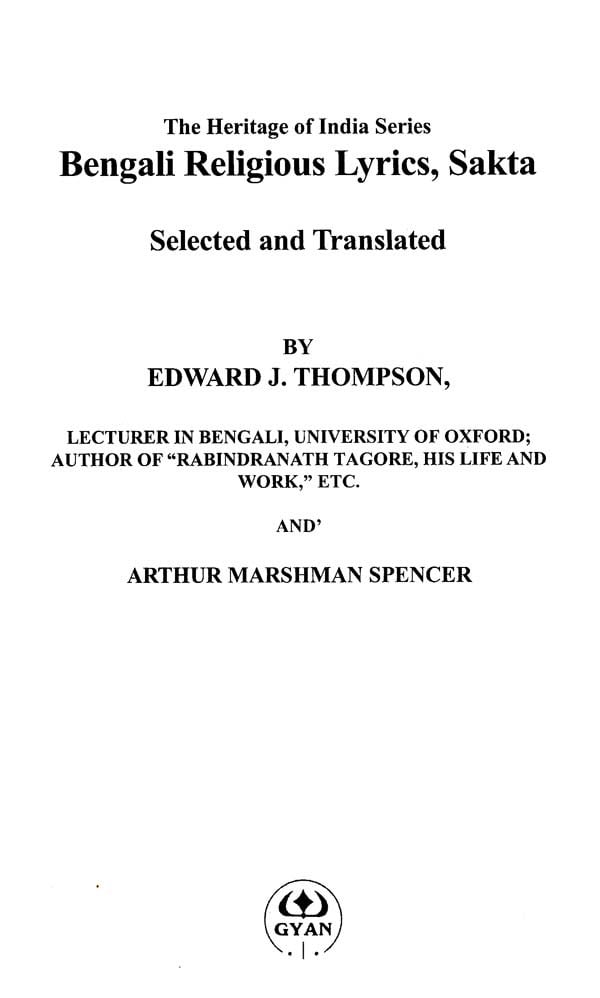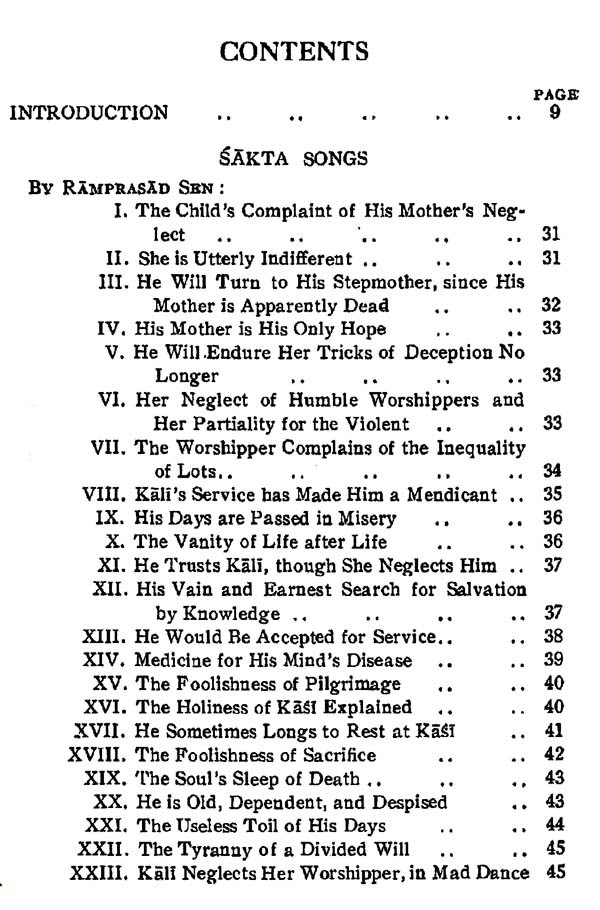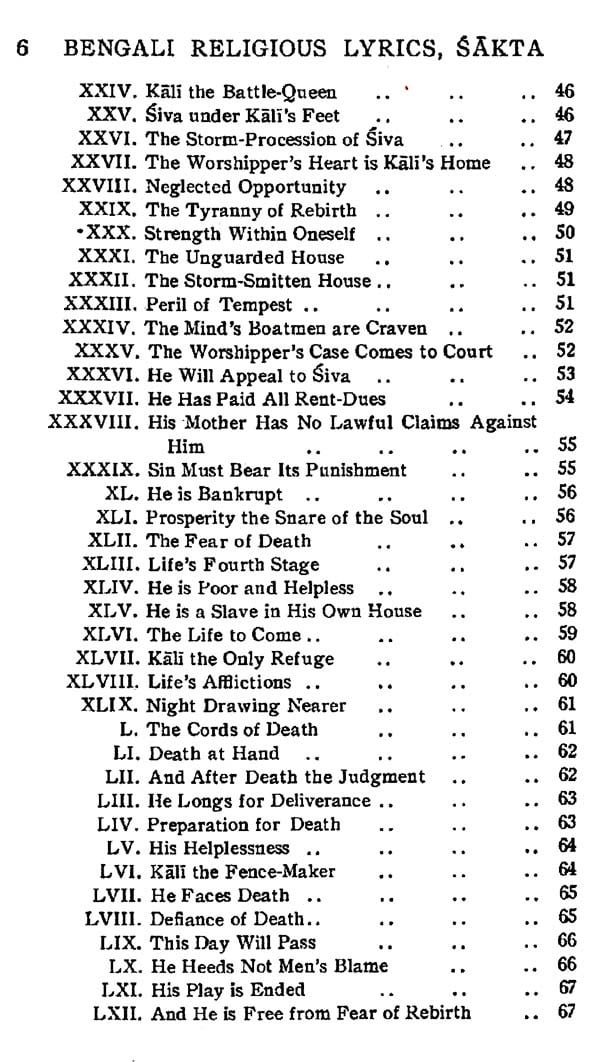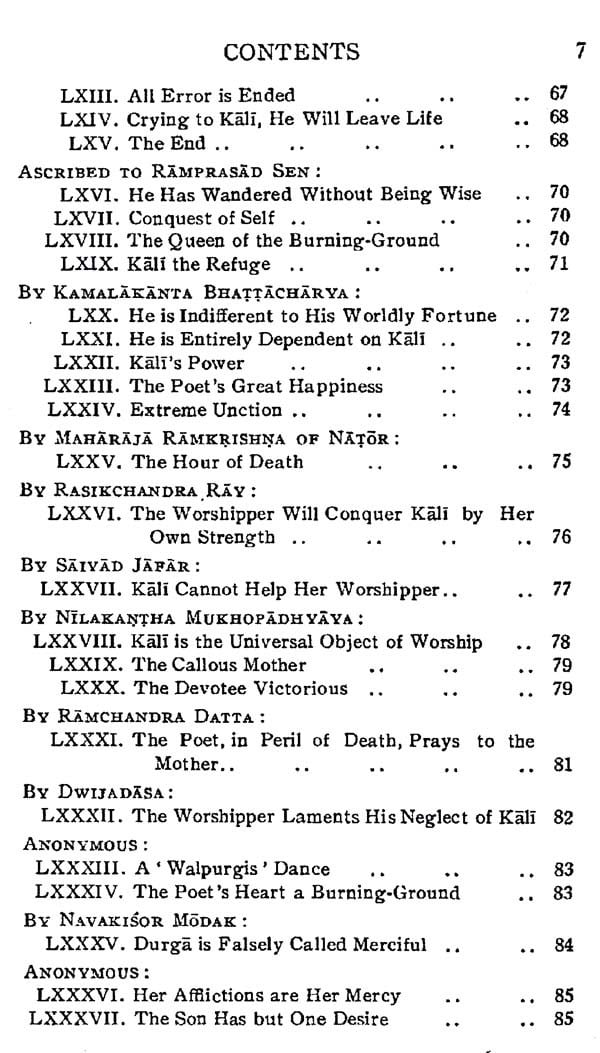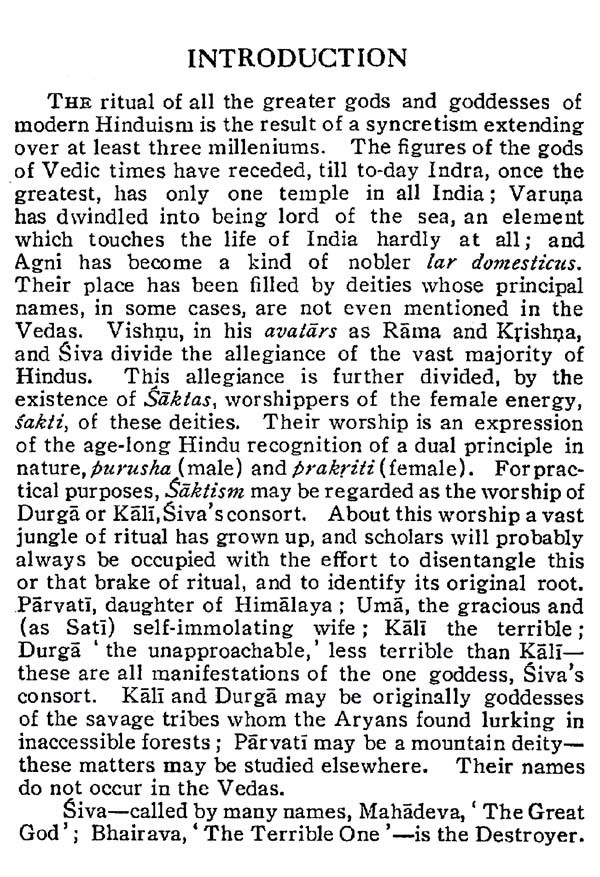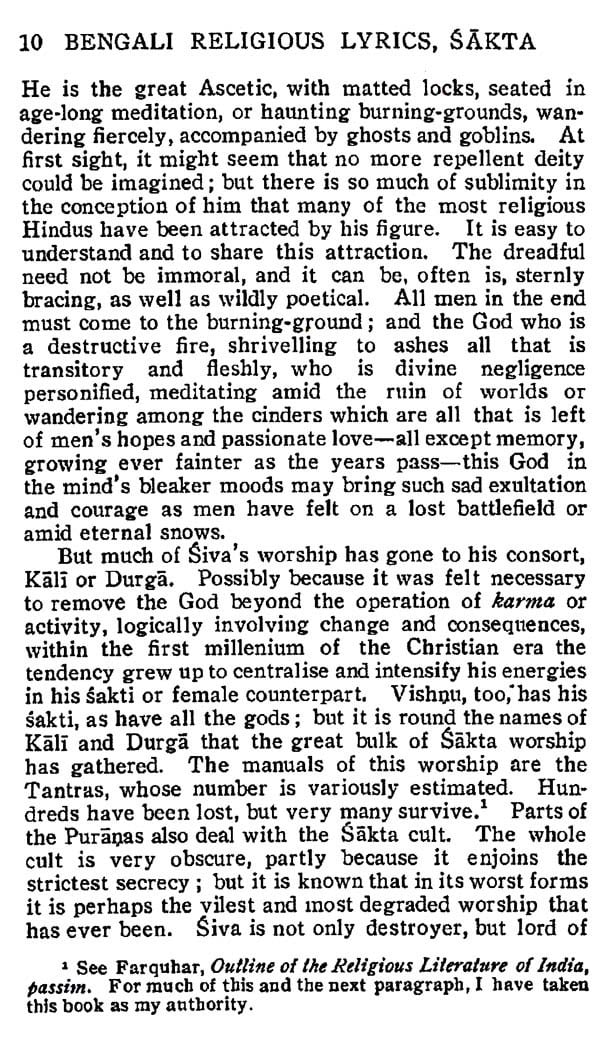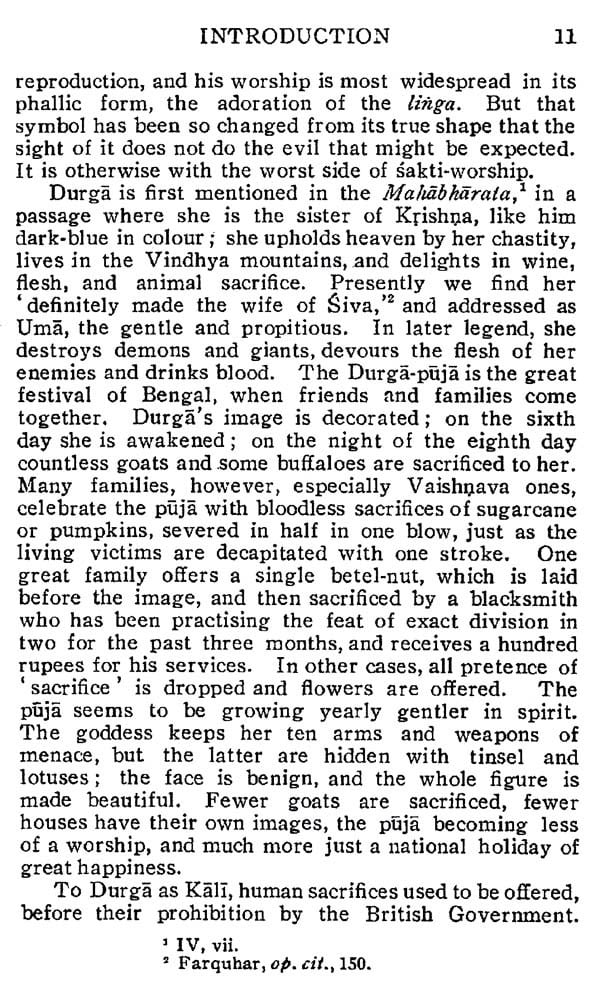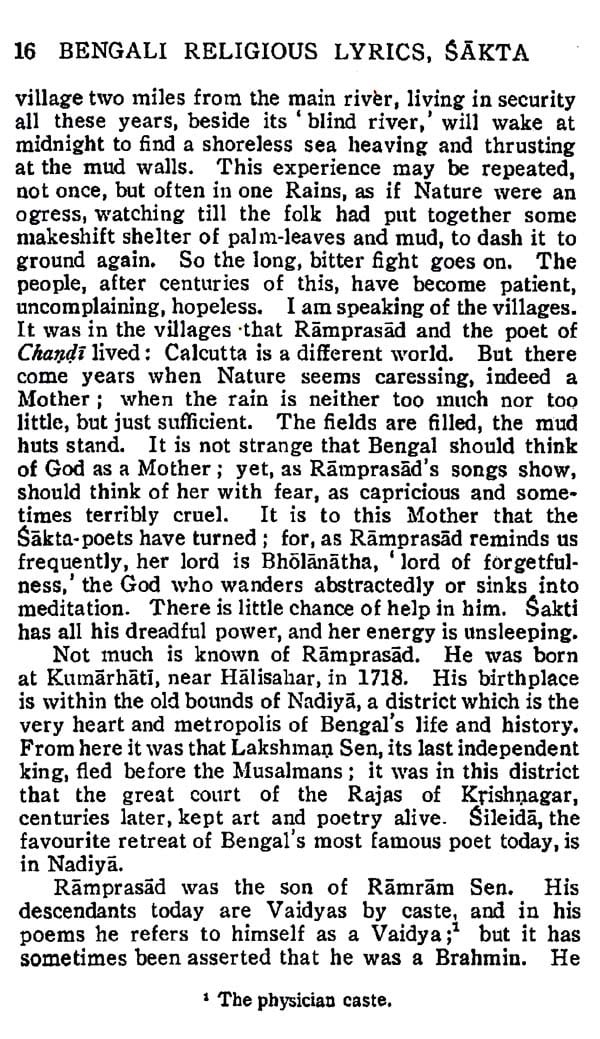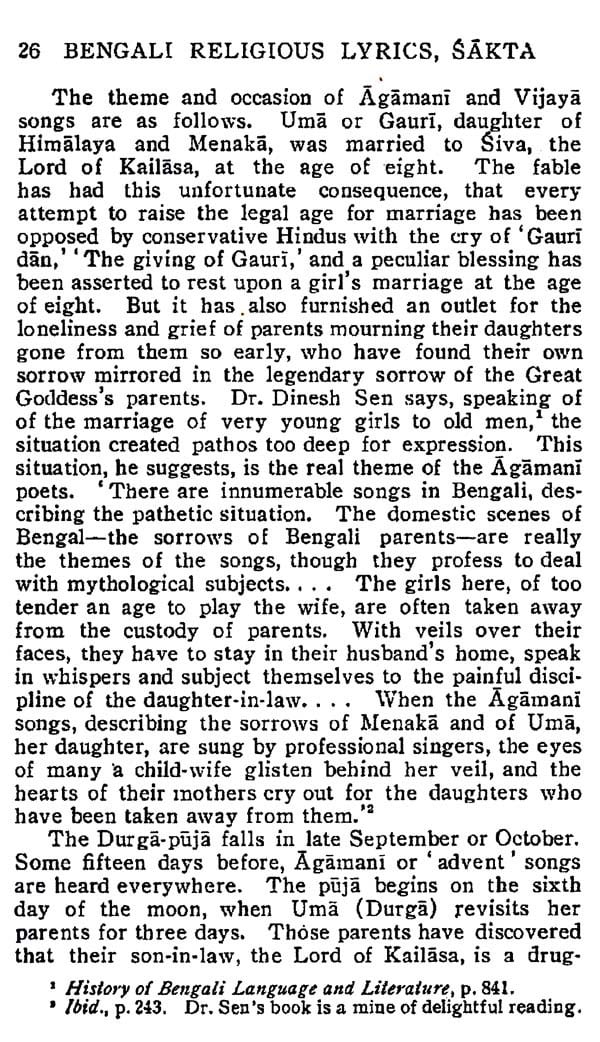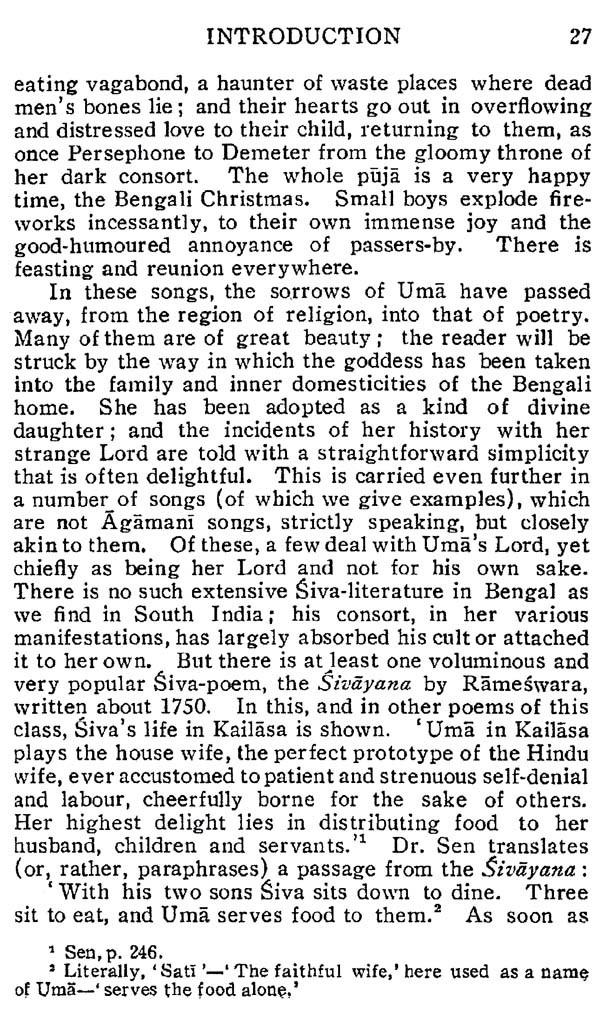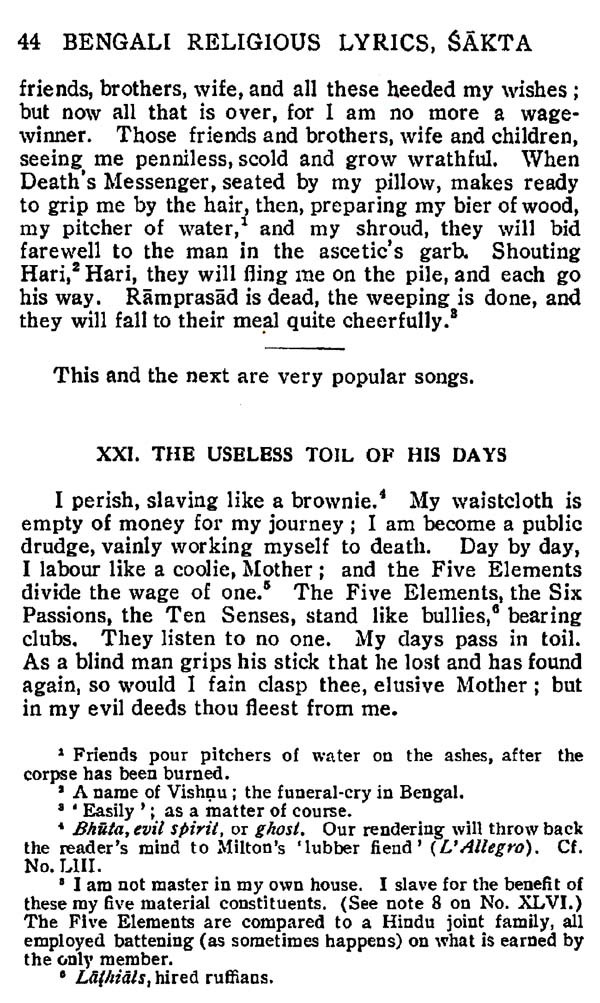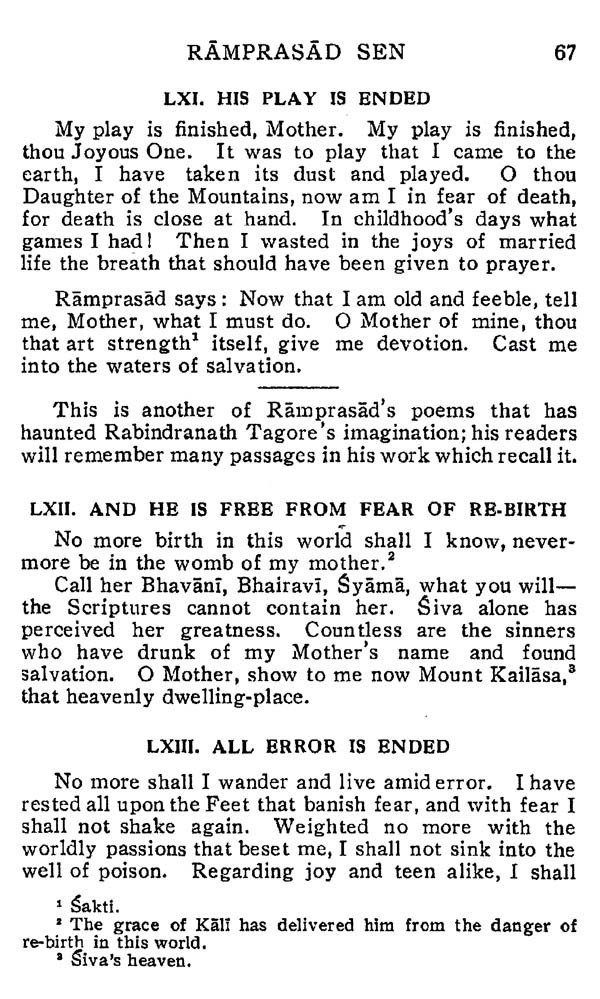About the Book The ritual of all the greater gods and goddesses of modern Hinduism is the result of syncretism. Visnu, in his avatars as Rama and Krishna, and Siva divide the allegiance Saktas, Worshippers of the Female energy. Sakti of these deities. Their worship is an expression of the age long Hindu recognition of a dual practice in nature, pursha (Male) and Prakriti (Female). Saktism may be regarded as the worship of Durga or Kali, Siva, consort. Sakta hymns contains many references to both the philosophy and practice of the cult. Some references will be found in hymns of Ramaprasada Sen in this. The present book contains English translation of lyrics from the Sakta literature. The poets included here are are Ramaprasada Sen, Kamalakanta Bhattacharya, Maharaja of Nator, Rasikachandra Ray, Saiyed Jafar, Nilkanta Mukhopadhyaya, Ramachandra Datta Dwihadasa, Navakishor Modak and some annonymous lyrics. The book also contains an introduction, tracing the development of Saktism and of the literature it has produced.
About the Author Edward John Thompson (1886-1946) was a British scholar, novelist, historian and translator. He is remembered for his translations from Bengali into English and his association with Rabindranath Tagore, on whom he wrote two books including a critical biography. He was sent to India in 1910 to teach English literature at the Wesleyan College in Bankura, Bengal and he went on to serve there as Vice Principal of the college and Principal of the mission's school located on campus. In Bengal, he began learning the language and came to know Rabindranath Tagore. Thompson was with Tagore at Santiniketan when news of his being awarded the Nobel Prize for Literature broke. Thompson translated many of Tagore's writings, including Megh Raudra, and wrote two books: Rabindranath Tagore: His Life & Work in 1921 and Rabindranath Tagore, Poet and Dramatist in 1926. Thompson returned to Oxford in 1923, where he joined the Indian Institute, teaching Bengali to ICS probationers. It was in England that he published Rabindranath Tagore: Poet and Dramatist that so displeased Tagore, but earned him a PhD from the University of London. He continued translating from Bengali to English and was involved with the India Society. Thompson was a prolific author who wrote several works of verse and prose, fiction and non-fiction. ARTHUR MARSHMAN SPENCER (1886-1943) WM missionary in India, born in Calcutta, the son of William Marshman Spencer. He was educated at Kingswood School and Headingley College and shone as an athlete. His ministry at Sarenga 1911-32 and then in Calcutta was marked by his special for the poor and for Indian national aspirations. His strong leadership was int evidence in the crisis summer of 1942, especially in the support he gave to Burma and China missionaries at that time. He died in Calcutta on 14 April 1943.
Preface THESE versions were first made from bazar-texts, the corrupt, irresponsible texts that swarm from Indian presses. We have had access to a better text lately. the best available, but it is not a good one. A scholarly edition of Ramprasad is badly wanted.
We have received generous help. Dr. Brajendra- nath Seal discussed with us many of these songs, both in letters and conversation. Dr. Dineshchandra Sen has given valuable information. Professors Pramodekumar Banerji and Ramsaran Ghosh, our colleagues at the Wesleyan College, Bankura, and Babu Sasibhusan Ghosh, have gone over the original and notes with us. Babu Juanendranath Sen has given permission to use four Agamani songs by his father, the late Rajanikanta Sen.
Ramprasad's songs are the great bulk of this selec- tion. His eminence makes this right, especially as his songs are constantly imitated by other poets. But, if the Sakta literature of Bengal is to be appreciated, a fuller selection is needed than we bave space for. Bengali scholars must first collect and edit this scattered literature; till this is done, our selection may serve a purpose.
Orthography proves a more difficult question every year. Such words as Brahman and svadest may be taken as now anglicised into Brahmin and swadeshi. The Sanskrit orthography misrepresents Bengali, but is a convenience to scholars. We have given it on the first occurrence of a Bengali word. But we have non- conformed in the spelling of some Bengali places and of Ramprasad. If the poet is Ramprasad to the fifty millions of his compatriots, and if Ravindranatha Thakura is allowed to call himself Rabindranath, not only in Bengali but in English, we think Ramprasad Sen should be saved from becoming Ramaprasada Sena. Titles of poems are our own.
**Contents and Sample Pages**
